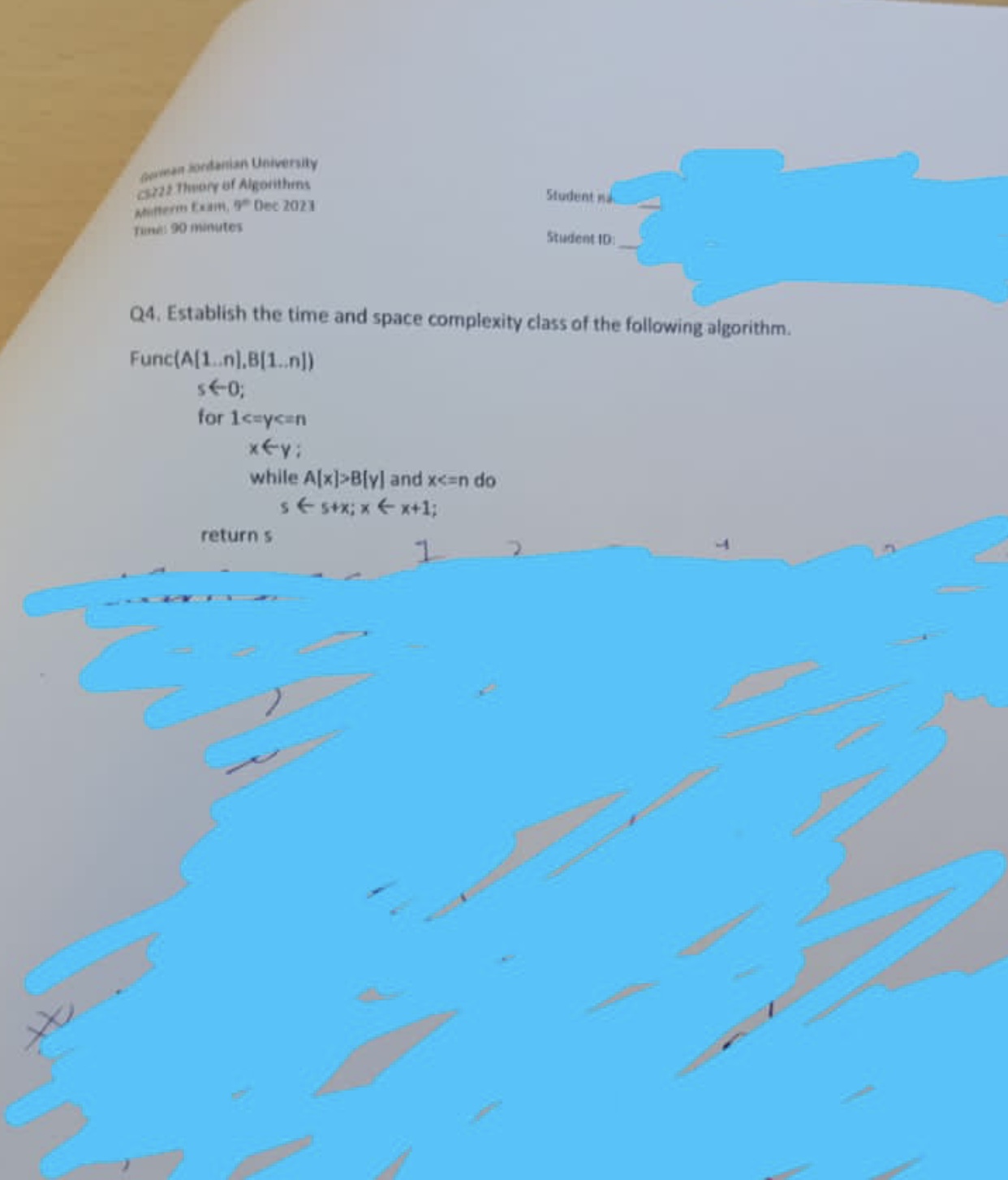Establish the time and space complexity class of the following algorithm.

Understand the Problem
The question is asking to establish the time and space complexity class of a given algorithm. It involves analyzing the provided pseudo-code to determine how it behaves in terms of resource usage (time and space) based on input size.
Answer
The time complexity is $O(n)$, and the space complexity is $O(1)$.
Answer for screen readers
The time complexity of the algorithm is $O(n)$, and the space complexity is $O(1)$.
Steps to Solve
- Analyze the Outer Loop
The outer loop runs from $c = 1$ to $n$, iterating $n$ times.
- Examine the Inner While Loop
The inner while loop continues as long as $A[x] > B[y]$ and $x = n$. Note that the condition $x = n$ restricts the loop.
- Determine the Termination Condition
The while loop will terminate if either $A[x] \leq B[y]$ or $x$ is no longer equal to $n$. If $x$ remains $n$, the while loop will keep checking the condition.
- Count the Total Operations
In the worst case, the while loop can execute at most once for each iteration of the for loop (if $A[n] > B[y]$).
- Time Complexity Calculation
Thus, the maximum total number of operations is based on the outer loop: $O(n)$.
- Space Complexity Analysis
The algorithm uses a fixed amount of extra space for variables $s$, $x$, and $y$. Therefore, the space complexity is $O(1)$.
The time complexity of the algorithm is $O(n)$, and the space complexity is $O(1)$.
More Information
This algorithm involves linear traversal through array elements, which is common in algorithms that involve pairwise comparisons or accumulations. Identifying the conditions correctly is crucial to determine the time complexity accurately.
Tips
- Assuming the inner loop runs multiple times without considering the exit conditions can lead to overestimating the complexity.
- Misinterpreting the termination conditions of the while loop.
AI-generated content may contain errors. Please verify critical information